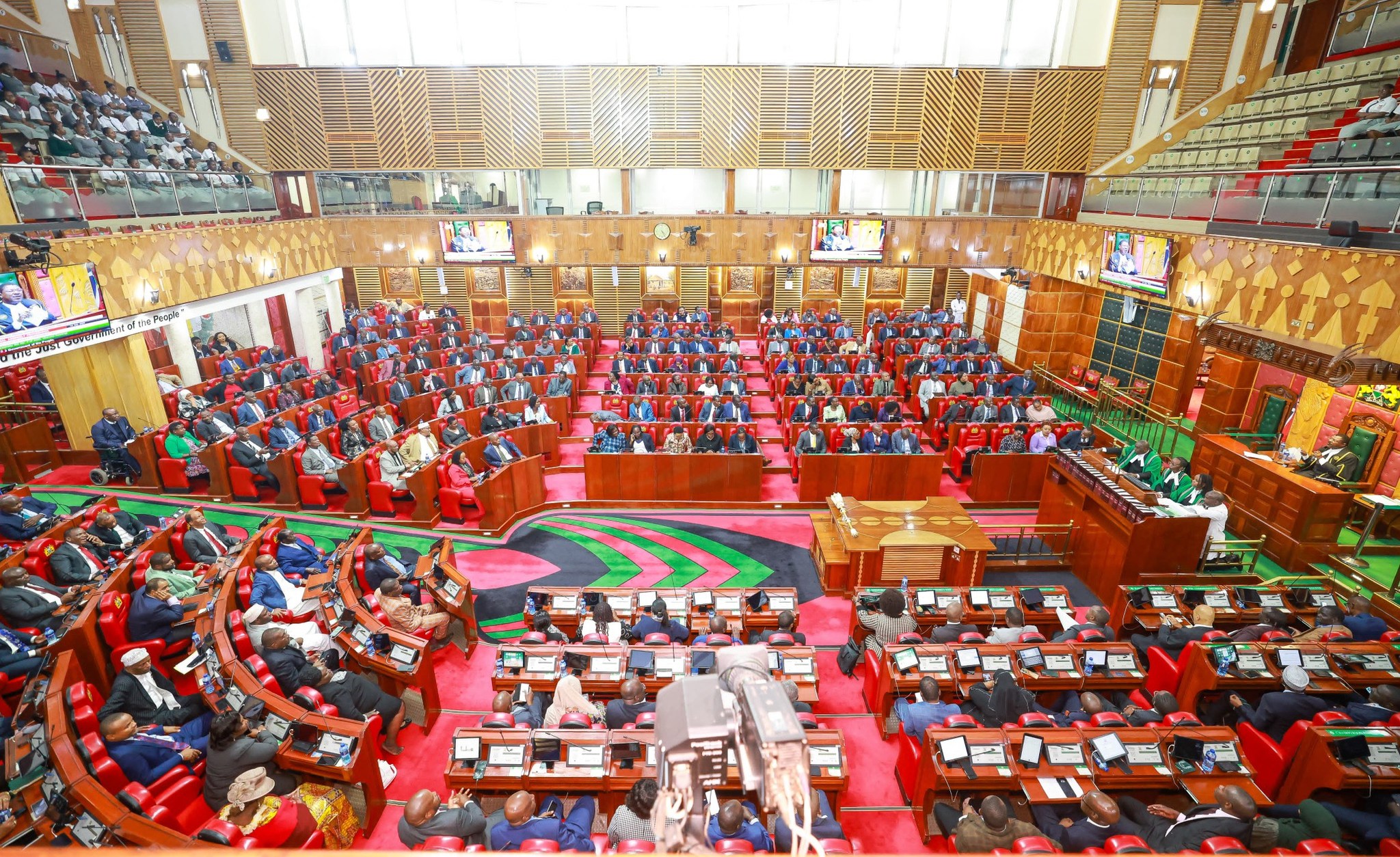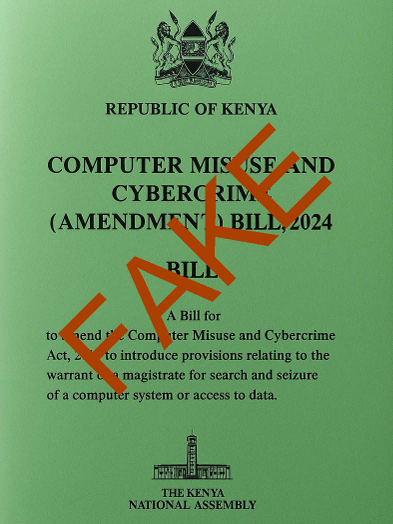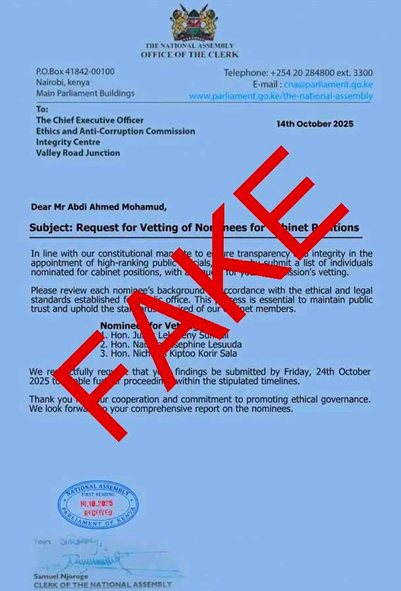
 National Assembly chambers.
National Assembly chambers.
The National Assembly has dismissed as fake a document circulating on social media purporting to be the Computer Misuse and Cybercrime (Amendment) Bill, 2024, warning the public against consuming unverified information attributed to Parliament.
In a statement on Wednesday, Clerk of the National Assembly Samuel Njoroge said the fake Bill, alongside a forged letter allegedly from his office seeking vetting of Cabinet nominees, was part of a wave of misinformation targeting Parliament.
“The attention of the National Assembly has been drawn to false information circulating on the internet and social media purporting to represent Bills recently passed by Parliament and a purported letter dated 14th October 2025 on the vetting of persons allegedly for approval by Parliament for appointment to the Cabinet,” Njoroge said.
He clarified that the Computer Misuse and Cybercrime (Amendment) Bill, 2024 being shared online was not genuine and bore a “fake and misleading” cover page and long title seemingly generated using artificial intelligence.
“The National Assembly takes great exception to the circulation of information contained in these false documents,” Njoroge stated, stressing that Parliament only deals with Bills properly published by the Government Printer.
 The fake Computer Misuse and Cybercrime (Amendment) Bill, 2024 being shared online
The fake Computer Misuse and Cybercrime (Amendment) Bill, 2024 being shared onlineThe Clerk further reminded the public that all authentic Bills introduced in Parliament are accessible through official channels — the Parliamentary website and the National Council for Law Reporting’s portal.
He said physical copies are also available at the Table Office in main Parliament Buildings and at the Government Press.
“For the information of the general public, all Bills published by the Government Printer and introduced in Parliament are accessible online from both the Parliamentary website and the website of the National Council for Law Reporting,” he said, providing the official links to parliament.go.ke and kenyalaw.org.
The fake document surfaced just days after President William Ruto assented to eight Bills on October 15, among them the genuine Computer Misuse and Cybercrime (Amendment) Bill, 2024 and the Privatisation Bill, 2025.
Both have sparked uproar from sections of civil society and the opposition, who accuse the government of pushing through contentious legislation.
Njoroge explained that Parliament had already presented the eight Bills to the President in accordance with constitutional and statutory timelines.
“Article 116 of the constitution requires the Bills assented to by the President to be published by the Government Printer after assent,” he said.
“A published Act of Parliament comes into force on the fourteenth day after its publication in the Kenya Gazette, unless the Act stipulates a different date.”
He cautioned that any commentary or debate on the contents of the newly assented laws before their gazettement and commencement was premature.
On the forged letter purportedly requesting the vetting of three Cabinet nominees, Njoroge was categorical: “The National Assembly has not received and is not processing any nominations for appointment of any persons to the Cabinet, contrary to the fake letter.”
The clerk urged Kenyans to verify any information purporting to come from Parliament before sharing it.
“We urge the public to rely only on official communication and information on the introduction and passage of legislation by the National Assembly,” he said.
Members of the public may contact the Office of the Clerk to confirm details or raise concerns via postal address P.O. Box 41847-00100, Nairobi, hand-delivered correspondence to the Main Parliament Buildings, or email [email protected].
“The integrity of legislative information is critical to public confidence in Parliament,” Njoroge said.
“We will not allow fake documents or deliberate misinformation to distort facts or mislead the public.”
 Forged letter purportedly requesting the vetting of three Cabinet nominees.
Forged letter purportedly requesting the vetting of three Cabinet nominees.














